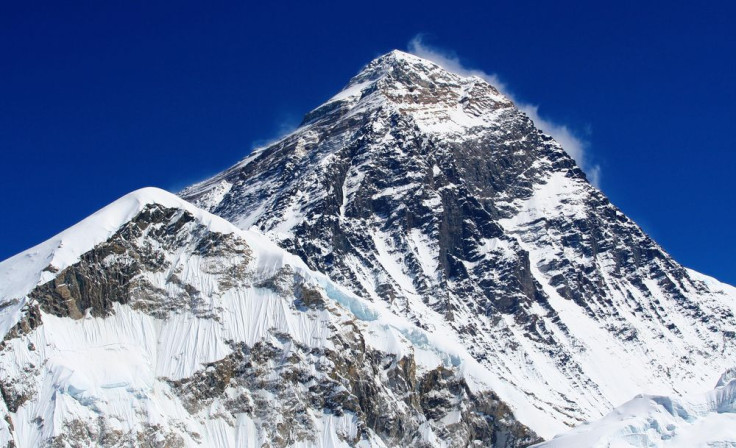13-Year-Old Becomes The Youngest Girl To Climb Mt. Everest, After 8 Months Of Training And No Mountain Experience

Malavath Poorna of India became the youngest girl to climb Mount Everest after completing the 29,035-foot trek on May 25. The 13-year-old girl from an impoverished farming family in the southern Indian state of Andhra Pradesh had no experience on a mountain prior to her ascent and completed eight months of rigorous training beforehand.
"It was very difficult. Every step is a dangerous step," Poorna told reporters on Wednesday. "When I reached the top of Everest, very good experience. I feel great and proud, and I shed joyful tears."
Poorna’s climb was sponsored by the Andhra Pradesh Social Welfare Residential Educational Institution Society, a program that encourages and helps underprivileged children in India with achieving their goals, the Associated Press reported. The China Tibet Mountaineering Association in Lhasa verified Poorna’s climbing and confirmed that she was the youngest girl to reach the top.
Back in 2010, 13-year-old Jordan Romero from Big Bear, Calif., became the youngest boy to reach Mt. Everest’s summit. At the age of 13 years and 10 months, Romero still remains the youngest person to ever reach the top over Poorna, who is 13 years and 11 months. Both climbers were forced to complete their hike from the mountain’s southern side in China since the northern side in Tibet carries age restrictions.
On top of steep slopes, exposed rocks, and deep crevasses, Poorna had to deal with freezing temperatures that reached well below minus 40 degrees. She explained the fear she felt after coming across several dead bodies on her way to the top of the perilous mountain. “I was shocked,” she told reporters. “Oh my god I got some fear."
After 26,000 feet, also known as the “death zone,” climbers run the risk of high-altitude cerebral edema (HACE) caused by an increase in blood flow to the brain as a part of the body’s attempt to compensate for the lack of oxygen. HACE is a described as a malfunction in the brain caused by swelling that can turn fatal if not immediately treated. Symptoms include dizziness, confusion, fatigue, nausea, vomiting, blurred vision, hallucinations, and paralysis.



























